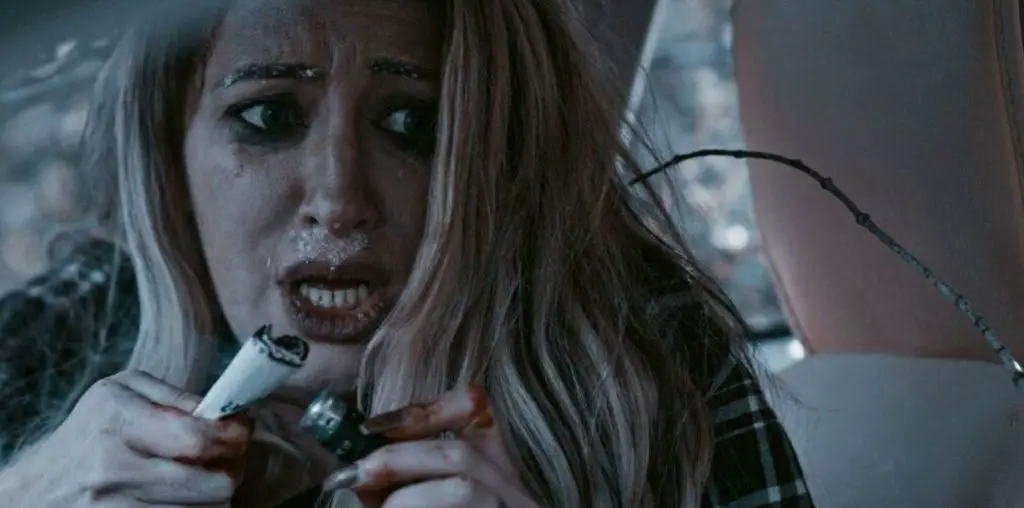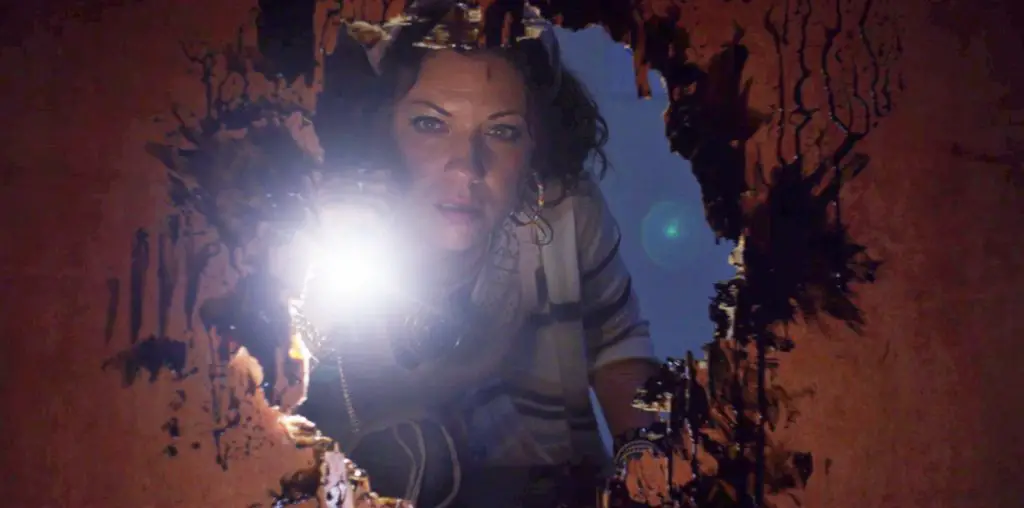
Berkeley-based indie filmmaker Antero Alli returns to his Finnish roots with his new feature “Under the Shipwrecked Moon,” a handsomely produced but emotionally challenging avant-garde venture which will certainly provoke debate among Alli’s fans.
“Under the Shipwrecked Moon” focuses on the journey of an elderly Finnish man who is planning to reunite with his family after leaving them 15 years earlier when his son, a ship’s captain, drowned in a shipwreck in the Bering Sea. Unknown to the family is the true parentage of the dead son: the woman he believed to be as his mother was actually the midwife who delivered him when his real mother, a mysterious shaman (known in the Finnish tradition as a tietaja), died in childbirth. The midwife later married the child’s father and pretended the child was hers. However, the shaman’s mystical powers seem to have been inherited by the dead captain’s grandson Jari, an American slacker who is uncertain if the increasingly bizarre visions he experiences while in a narcotized state are the result of his drug intake or another force.
The elderly man, however, unexpectedly suffers a stroke before his family reunion and is hospitalized. As his family gathers at his bedside to bring their own grievances for an airing, the comatose elder experiences a series of flashbacks, hallucinations and heavily symbolic imagery linked to the secret he’s kept hidden for so many years.
“Under the Shipwrecked Moon” strongly calls to mind Alli’s first feature film, the 1993 production of “The Oracle,” a Neruda-influenced work which also had a dying elderly man slipping in and out of dreamlike states where strange and surreal visions embrace him. From an emotional level, it is easier to connect with “The Oracle” and its family of sincere yet flawed individuals long-separated by frayed emotions and brought together too late by a tragedy which fails to provide the cathartic state required to put ill-will to rest. In “Under the Shipwrecked Moon,” the characters seem fairly sterile and distant and it is difficult to find an intellectual or emotional bond with their suffering and plight. Or, to be blunt, these are not the kind of folks you want to hang out with, let alone watch in a film. Nor does it help that Gabriel Carter, who plays the pivotal role of the grandson, is highly unlikeable and never seems comfortable within his character’s skin (it is equally disturbing that we first meet him doing a wild and seemingly endless dance in a black dress, even though it is quickly but confusingly explained he has no transvestite interests).
Where “Under the Shipwrecked Moon” triumphs, however, is in Alli’s extraordinary dream and hallucination sequences. Even by the high standards created by the filmmaker in his stunning recent films including the recent “Tragos” (2000) and “Hysteria” (2002), “Under the Shipwrecked Moon” takes the imagination into new and daring realms that few artists could ever aspire to conceive. Mixing the shaman traditions of Finland’s folklore and heritage with psychedelic washes of color and daring theatrical experiments (two actors play the rivals of a raven and a hedgehog in elaborate costumes of the animals), and capping the visuals with a haunting score created and performed by his real-life collaborator Sylvi Alli (whose beautiful screen presence is used to its fullest as the shaman), the film’s landscape of mists, monsters and mysteries is so artistically overwhelming that it makes “The Cremaster Cycle” look like “The Lizzie McGuire Movie.” If the film’s human drama seems like it needs a bit more oxygen, its visuals and technological brilliance has enough imagination to fuel a half-dozen movies.
In presenting “Under the Shipwrecked Moon,” Alli cites influences ranging from Cocteau, Fellini and Jodorowsky to David Lynch and Guy Maddin. This is actually unnecessary, as Alli’s style and approach to film art is uniquely his own. Even if the human drama of “Under the Shipwrecked Moon” does not meet its fullest potential, the filmmaker’s genius for framing challenging and provocative features cannot be denied.


